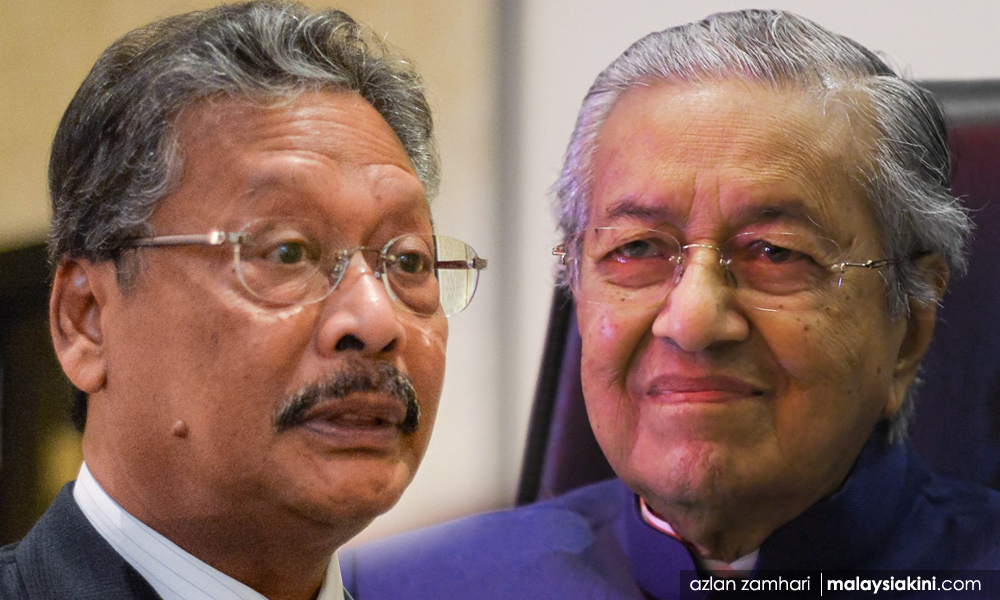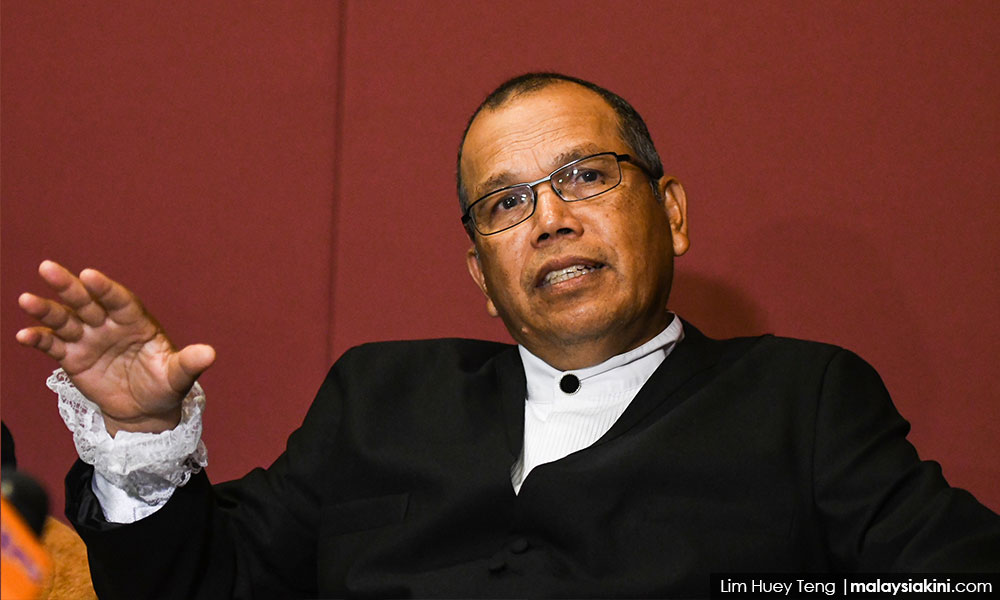Prime Minister Anwar Ibrahim was right when he insisted that the Royal Commission of Inquiry (RCI) on the issue of Batu Puteh had to do with the special task force set up to review the laws concerning the issue.
He was also right to say that the special task force was formed during former prime minister Ismail Sabri Yaakob’s administration.
Nonetheless and with the greatest respect, I am afraid his government might be justifiably accused of being careless in ensuring that the RCI was independent.
As rightly pointed out by Lord Hewart CJ in R v Sussex, justice must be served and perceived as being done without any doubt.
Anwar’s government should have been fully aware that when Apandi Ali was appointed to chair the special task that per se could be considered a serious conflict of interest. Such a fact is too glaring for his government to be oblivious to.
When the special task headed by Apandi was seen to be infected by a rule against bias, especially against Dr Mahathir Mohamad, Anwar's government had every right not to pursue the idea of setting up the RCI on the same issue.

At the very least, his government should have avoided recommending the appointment of any member in the said special task to sit in the RCI for our king’s endorsement. Being a constitutional monarch, the king should have been properly and transparently advised by the government of the day.
For instance, why Baljit Singh Sidhu was still allowed to be an RCI member is beyond our comprehension. Any first-year law student would know he should not have been in the RCI from the get-go on the ironclad ground of conflict of interest. After all, he was one of the members of the special task headed by Apandi.
When the RCI recommended a criminal probe into Mahathir’s handling of sovereignty issues regarding Batu Puteh, Apandi was reported to have said “I agree with the recommendation of the RCI.”
Such a statement, with due respect, merely reaffirms the perception that both the special task and RCI were not free from the scourge of bias and prejudice - at least against Mahathir.
Raus’ appointment
My second point is on the appointment of Md Raus Sharif - the former chief justice - as the RCI chairperson. I am of the view that Raus, with the greatest respect, should have graciously declined the call by Anwar’s government to be an RCI member, let alone the chairperson.
Why? It has been in a public record that in 2017, Mahathir sought legal redress in court to revoke Raus’ appointments as the chief justice and injunct him from carrying out his judicial and administrative duties.

In his judicial review application, Mahathir, inter alia, applied for an order of mandamus compelling the then-prime minister Najib Abdul Razak to duly advise the king to revoke Raus’ appointments as additional judge and chief justice.
It goes without saying that the court’s action by Mahathir against Raus had necessarily raised the issue of real bias.
In law, the rule against bias is the core element of natural justice, requiring that any decision-making authority shall only consist of impartial individuals who act fairly and without prejudice.
This sacred principle is normally embodied in the maxim “nemo judex in re sua”, which means that no one can be a judge in his own cause. Raus was aware that a judge, for instance, will be disqualified from determining any case in which he may be, or may fairly be suspected to be biased.
The erection of the rule against bias is primarily aimed at preventing any improper factors from influencing a decision maker’s decision in a specific case. This rule is deeply rooted in the basic principle of fairness.
It also seeks to instil public confidence in the impartiality of administrative adjudication.
Some legal experts are of the view the decision of the RCI recommending Mahathir to be criminally indicted has been unduly tainted by elements of real bias hence such a finding would be considered illegal and invalid, rendering the RCI’s proceeding “coram non judice” (before a body lacking proper authority). - Mkini
MOHAMED HANIPA MAIDIN is a former deputy minister of law.
The views expressed here are those of the author/contributor and do not necessarily represent the views of MMKtT.



No comments:
Post a Comment
Note: Only a member of this blog may post a comment.